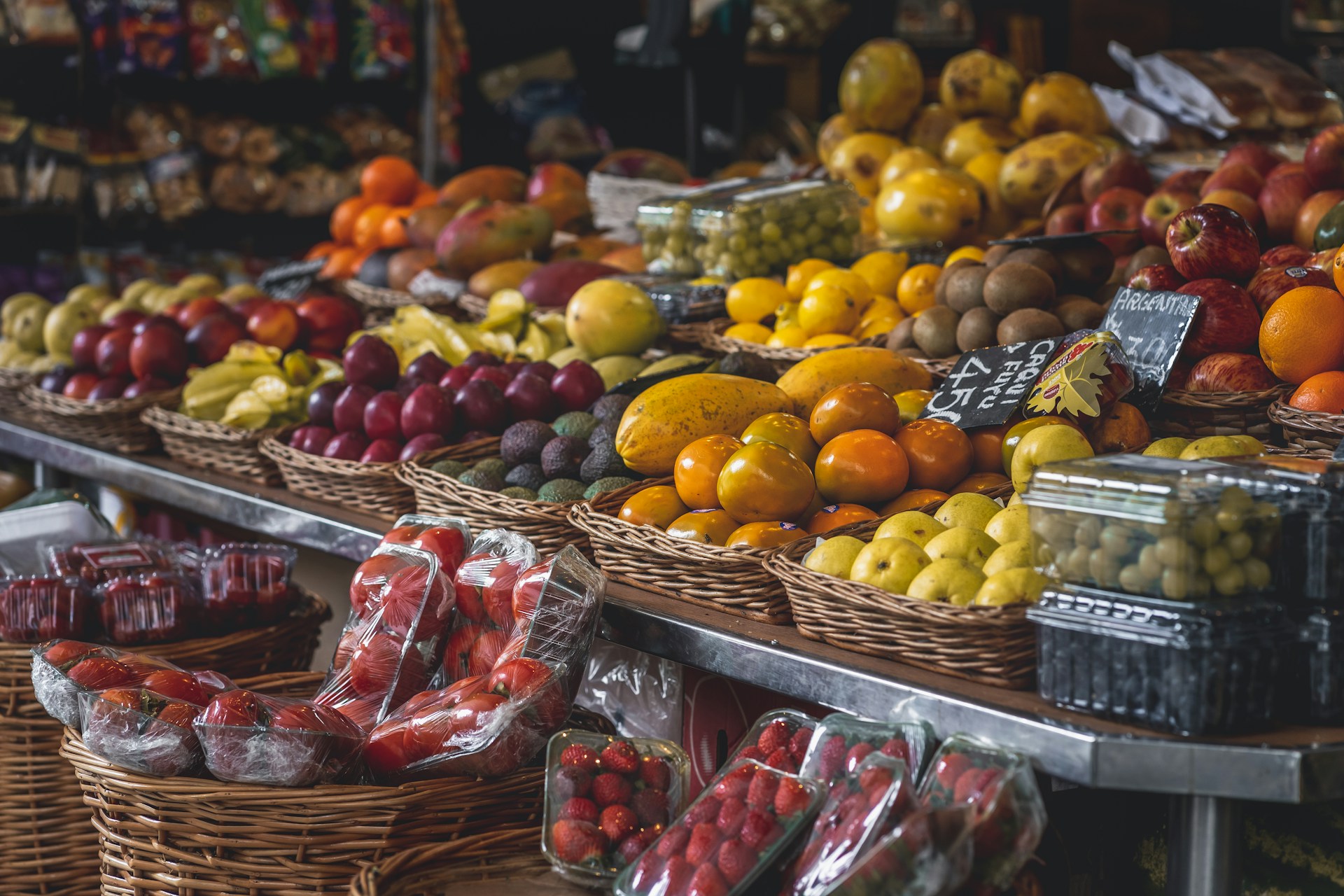Safety in the realm of produce retail has always been a topmost concern for everyone involved in the supply chain.
From the fields, all the way to market shelves, checkpoints are established to maintain product quality and safety.
As the world now invests more heavily in technological futures, we witness its impact on this industry too.
Cutting edge innovations are now becoming prominent in assisting and enhancing safety in produce retail.
They are being hailed as game-changers with the potential to establish new paradigms in industry standards.
The purpose of this blog is to shed light on some of these technologies, their applications, and the preventive benefits they bring to the perishable produce market.
Technologies Enhancing Safety In Produce Retail
1. Artificial Intelligence in Supply Chain Management
In the current digital age, Artificial Intelligence (AI) plays a significant role in enhancing safety in product retail.
The vital function of AI in supply chain management translates to enhanced safety and improved efficiency in the produce retail industry.
AI systems are used to analyze vast amounts of data to predict trends, manage inventory and streamline operations.
These predictive analytics ensure adequate stock levels, minimize waste and ensure swift delivery of fresh produce to the consumer, contributing to safety in produce retail.
Through machine learning, a subset of AI, systems are trained to predict potential disruptions in the supply chain, facilitating proactive measures to prevent losses and maintain the quality of produce.
For instance, in the case of predicted adverse weather conditions, AI guides decision-making on alternate sourcing, ensuring the continuous supply of safe, fresh produce.
Apart from disruption management, AI aids in quality control in supply chains, another crucial aspect of safety in produce retail.
AI-driven imaging systems detect visually defective produce, removing them from the chain early, and ensuring only the highest quality reaches the consumers.
AI also facilitates the automation of manual tasks within the supply chain, such as sorting and packaging, thus eliminating human errors and ensuring that safety standards are consistently upheld.
Furthermore, the application of AI in tracking and traceability systems enhances transparency in the supply chain.
These systems collect, analyze and present real-time data on the journey of the produce, from the farm to the consumer, ensuring that any safety compromises can be quickly identified and addressed.
AI also contributes to a consumer-informed retail environment by enabling retailers to provide customers with accurate information about the produce, including details about its origin, handling, and storage conditions.
This transparency not only boosts consumer confidence but also applies pressure on all participants in the supply chain to adhere to safety standards.
Overall, the implementation of AI in supply chain management ensures that the handling, transportation, and sale of produce is more efficient, reliable, and safe.
It is essential in today’s tech-driven world to understand and leverage these AI-driven processes to ensure the safety and satisfaction of the end consumer.
2. Blockchain Traceability Systems
In the realm of produce retail, one of the essential features that enhance safety is the adoption of Blockchain Traceability Systems.
These systems offer an exceptional level of transparency in the supply chain, providing the opportunity to track and trace the journey of the products from the brand to the consumer.
With the help of blockchain, producers, as well as retailers, are able to verify information about their products such as its origin, harvest date, transport details, and many more.
This kind of visibility not only reinforces the integrity of the brand but also upsurges consumer confidence because they have access to detailed, reliable information about what they are buying.
Studies have shown that consumers are willing to pay more for products that offer full traceability, a feature made possible by the use of blockchain.
In essence, blockchain traceability systems provide a sense of security to both the brands and the consumers by offering an indisputable, accountable record of the supply chain journey.
Additionally, in case of an outbreak of foodborne illness, blockchain traceability systems would allow for rapid traceback of the infected produce to its source, thereby aiding faster containment measures.
This ability is critical in minimizing the impact of such outbreaks and restricting potential damage.
The underlying principle of blockchain guarantees that the data entered is immutable, therefore elevating the trust in the data provided.
This ensures that manipulation of product data is next to impossible, and all stakeholders can rely on the information at hand.
Moreover, this technology can help in preventing unnecessary waste. For example, if a single batch of lettuce is contaminated, with the track and trace capabilities of blockchain, only that batch needs to be removed, saving the rest.
This is an improvement over traditional systems that would often result in discarding whole stocks as precautionary measure.
Blockchain can also facilitate in proving the authenticity of premium produce like organic vegetables or exotic fruits.
With all these mentioned benefits, it is clear why many food and retail companies are becoming increasingly interested in implementing blockchain traceability systems.
Given the increasing demand of transparency and safety in food supply chains, it is only a matter of time before this technology becomes a standard feature in the produce retail industry.
3. IoT-enabled Refrigeration Systems
Within the field of produce retail, the implementation of IoT-enabled refrigeration systems has proven to be a game-changer.
These systems enhance safety by providing real-time temperature monitoring while the produce is being stored and transported.
This innovative technology ensures that the produce remains fresh and safe for consumption by maintaining required temperature conditions constantly.
Moreover, it aids in identifying and addressing refrigeration problems promptly, thereby reducing the risk of spoilage.
With the help of IoT-enabled refrigeration systems, not only is the quality of the produce maintained, but potential waste is minimized, leading to expansive cost savings in the long run.
By leveraging IoT for refrigeration, retailers are also able to reduce energy consumption as the systems are designed to operate only when necessary.
These systems are equipped with sensors that automatically adjust the cooling as per the load in the refrigeration unit.
This truly represents how technology is increasing efficiency and safety in produce retail.
In addition to temperature control, these systems also offer humidity control which is equally critical in preserving the quality of certain types of produce.
One of the major advantages of IoT-enabled refrigeration systems is the ability to alert the staff in case of any issues or irregularities.
This proactive approach ensures that the produce is not exposed to unsafe temperature conditions even for a short period.
The data collected by the IoT sensors can be comprehensively analyzed to predict potential system failures in advance, offering an opportunity for preventive maintenance.
Furthermore, some advanced refrigeration systems also have the capability of tracking the location of refrigerated trucks in real-time during transportation.
This aspect ensures the security of the produce while in transit, further adding to the safety measures.
Undoubtedly, IoT-enabled refrigeration systems are dramatically reshaping the safety protocols in the produce retail industry, making them an essential aspect of the modern supply chain.
4. UV-C Light for Surface Disinfection
The unique technology of UV-C light for surface disinfection is greatly enhancing safety measures in the world of produce retail.
Utilizing the disinfection properties of Ultraviolet C (UV-C) light, high touch surfaces can be sanitized efficiently and quickly.
The appeal of this technology lies in its ability to kill microorganisms such as moulds, bacteria, and viruses upon contact.
This process does not require any chemical substances, making it a safe choice for disinfecting surfaces in environments that handle food.
In addition, UV-C light disinfection is a highly effective method that significantly reduces the risk of cross-contamination within the retail space.
By design, the light can disinfect surfaces within seconds, providing retailers with a rapid and efficient way to maintain cleanliness.
This immediacy is critical in the fast-paced world of produce retail, where surface hygiene can directly impact product quality and customer health.
UV-C light technology can be easily integrated into the existing cleaning protocols of a retail space, providing an extra layer of protection while enhancing customer confidence.
The light can be used to sanitize high-touch areas and frequent contact points, such as shopping carts, payment terminals, and packaging materials.
Research has proven that the technology can effectively kill 99.99% of pathogens on various surfaces.
The effectiveness of UV-C light in inactivating disease-causing organisms is no longer a mystery, its potential application in the food industry has attracted significant attention.
Green leafy vegetables, widely associated with foodborne illnesses, can be cleaned with UV-C light technology, minimizing the risk of contamination.
This tool also plays an essential role in extending the shelf-life of perishable items by minimizing bacterial growth both on the surface and inside packaging.
Therefore, through this innovative technology, retailers can safeguard the quality of their products while also enhancing public health safety.
The widespread adoption of UV-C light disinfection technology will transform the safety norms and guidelines in produce retail, bringing a new level of trust between retailers and consumers.
5. Automated Spraying and Washing Systems
In the realm of produce retail, automated spraying and washing systems have emerged as an essential technology enhancing safety measures.
These machine-assisted systems ensure complete sanitization of fruits and vegetables, thereby reducing the risk of microbial contamination, a frequent concern in produce retail.
By implementing advanced automation, these systems are programmed to thoroughly clean every crop without the need for manual intervention, significantly reducing human error possibilities.
Notably, automated spraying and washing technology boasts standardization and efficiency, both central to achieving optimal sanitation in produce retail.
The technology behind automated systems also contributes to water conservation, as they are designed to recycle water and reduce wasteful practices that often occur in manual washing.
Furthermore, a crucial component of these systems is their flexibility and scalability, allowing businesses to easily adapt the system in accordance with their capacity requirements.
This means, regardless of the size or type of the produce, automated spraying and washing systems can customized to meet individual business needs, be it a small retailer or a large supermarket chain.
The incorporation of such systems not only bolsters safety but it also streamlines workflow, allowing businesses to optimize their operations and productivity.
In fact, automated spraying and washing systems can significantly reduce labor costs and potential workplace hazards, as the machines handle most of the cleaning and sanitization process.
This, in turn, allows employees to focus more on critical tasks that require higher levels of expertise.
Efficiency aside, the use of automated spraying and washing systems also promotes user and consumer trust, as it ensures that their food has been thoroughly cleaned and is safe for consumption.
The promise of safety, delivered by these automated systems, can enhance a retailer’s reputation and boost overall customer satisfaction.
Considering the high stakes involved in the produce retail industry, where product safety and hygiene are paramount, adoption of this technology has become vital.
Overall, automated spraying and washing systems signify a pivotal leap in the produce retail sector in terms of safety, efficiency, and sustainability.
In future debates around optimal sanitation practices, the role of automated systems will undoubtedly continue to expand and become more crucial.
6. Advanced Recycling and Waste Management Tech
The realm of produce retail has been witnessing a revolutionary change with the advent of Advanced Recycling and Waste Management Technologies.
These sophisticated systems have been strategically designed to tackle the pressing issue of waste generation and disposal in the retail sector.
Sustainability is now being placed at the forefront of business models, with effective waste management being a key driver of this shift.
Through Advanced Recycling and Waste Management Tech, an unprecedented avenue for improving safety, reducing environmental impact, and optimizing cost efficiency in produce retail has been opened.
One impactful example of this burgeoning technology is in the use of automated sorting systems.
These systems employ cutting-edge AI and machine learning algorithms to accurately separate and categorize waste, ensuring that recyclable materials are effectively recovered and reused.
This process minimizes the quantity of waste that ends up in landfills while maximizing the utilization of resources.
Another potent application lies in bio-digestion technologies.
These systems transform organic waste into bio-gas, a sustainable energy source, contributing to a circular economy while also significantly reducing carbon emissions.
In addition, the rise of Internet of Things (IoT) technology in waste management has made it possible to monitor and control waste collection, treatment, and recycling processes in real-time.
From the identification of full bins ready for collection to the analysis of recycling data for actionable insights, these IoT-enabled systems lead to efficient waste management operations.
Moreover, smart waste management solutions equipped with Advanced Analytics are capable of predicting trends, thereby enabling proactive measures in waste reduction strategies.
Notably, the deployment of Advanced Recycling and Waste Management Tech not only promotes sustainable practices but also enhances safety in produce retail.
For instance, exposure to rotting produce or improperly disposed waste can pose significant health risks, leading to foodborne illnesses.
However, with these technological solutions in place, the risk of these hazards greatly diminishes, thus ensuring maximum safety for consumers and retail workers alike.
Undeniably, the incorporation of Advanced Recycling and Waste Management Tech is essential for modern, sustainable, and safe produce retail.
7. Machine Learning for Quality Control
In the ever-evolving industry of produce retail, the utilization of advanced technologies is essential to ensure safety and quality control.
Machine Learning (ML) is rapidly gaining recognition for its potential role in enhancing safety in this sphere.
Machine Learning for quality control is a technology that involves programmed algorithms learning from data to make informed decisions.
This means that this technology can learn from the vast amount of data generated in the produce retail industry, to detect any potential safety or quality issues.
With ML, safety in produce retail can be significantly enhanced as it emphasizes on the detection and prevention of potential foodborne illnesses.
These algorithms are capable of identifying patterns of contamination, predicting potential harmful occurrences and even suggesting preventative measures for the same, thus enhancing the overall product safety.
Moreover, ML can also provide invaluable insights for improving operational efficiency.
It can optimize the sorting and grading process of fruits and vegetables, which not only ensures quality control but also reduces wastage.
Apart from these, ML-based systems can also assist in evaluating the freshness of products, contamination detection, temperature control, and other crucial aspects related to food safety.
These systems can make quick and continuous assessments in real-time, making them significantly faster and more accurate than manual checks.
Another significant advantage of using ML for quality control in produce retail is the reduction in human error.
As these systems learn and improve over time, their accuracy increases, reducing the chance of errors and enhancing safety measures.
Many leading produce retailers are integrating ML technologies into their supply chain to improve their food safety protocols.
With the advancements in AI and ML, this technology poses a truly transformative potential for produce retail, making the entire supply chain safer and more efficient.
However, implementing ML in produce retail is not without its challenges.
The successful application of ML for quality control requires careful and thoughtful planning and execution.
Quality datasets, skilled personnel, and adequate resources are needed for its successful implementation and to tap into its full potential.
The Bottom Line
Emerging technologies have deeply infiltrated the agriculture and food technology sectors, offering a plethora of solutions and automated systems conducive to increased productivity, efficient resource allocation, enhanced product quality, effective waste management, and optimum supply chain management.
Advancements such as Artificial Intelligence and Machine Learning are enabling accurate prediction and monitoring, contributing to improved quality control.
Systems leveraging the power of Blockchain and IoT are ensuring traceability and allowing real-time monitoring, respectively, thereby promoting transparency, and reducing wastage.
Moreover, automated and UV-C light-based disinfection systems are keeping farm produce safe, while advanced recycling technologies are managing waste more effectively.
Therefore, the integration of these technologies in the agri-food tech industry bears endless potential, catalyzing a transformation beneficial for both producers and consumers.




